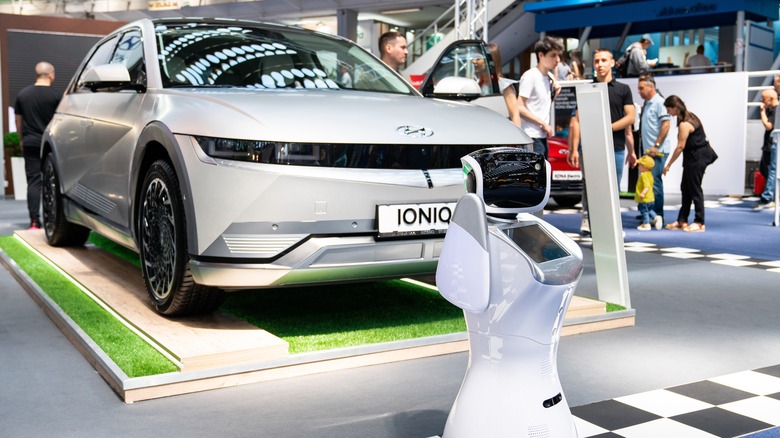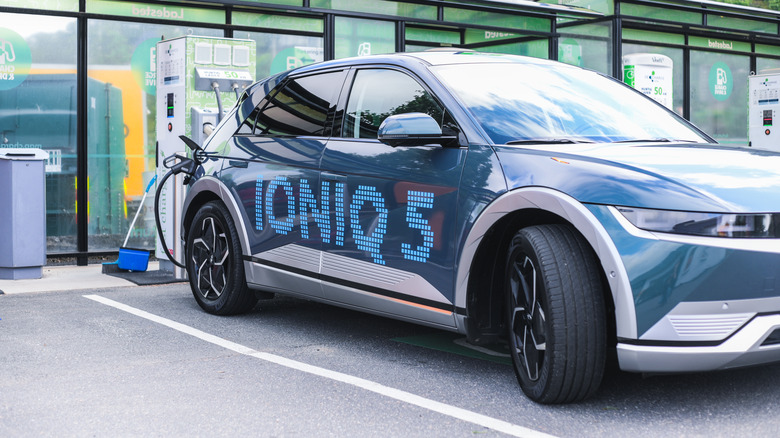Charging Your Hyundai IONIQ 5 At Home: How Much Will It Cost You?
The upcoming Hyundai Ioniq 5 will be facing off with the similarly-priced Tesla Model 3 for a major chunk of the electric vehicle market. Hyundai has built a solid reputation for inexpensive, solidly engineered daily drivers. If the company can deliver a serious contender at the lower end of the EV price map, established automakers like Tesla may have reason to worry.
At the same time, customer trepidation is a very real concern. Auto buyers have significant questions about the practicality of electric vehicles. Among their issues is how long a charge will last and, crucially, how much it will cost. With home charging still largely necessity for most EV owners looking to get the most out of their vehicles, Hyundai has to excel to be a serious option on the EV market. After all, operating cost per mile is one of the main reasons to switch from gas to electric: gas prices are almost always higher and tend to fluctuate more than electric alternatives.
The price of practicality
The short answer is that the Hyundai Ioniq 5 hits the same mark as its competitors in terms of charging speed and cost. The Ioniq 5 comes in at 256 miles of range for the Standard Range model, and jumps to 303 miles of range for the Long Range configuration — with a 58 kWh and a 77.4 kWh battery, respectively.
Both the Ioniq 5 and Tesla Model 3 will charge in about eight hours on a home-based wall charger, specifically one capable of outputting 60 km/h of range. Given the U.S. average kWh price of $0.16, that ideally comes to about $9.28 for a full battery charge of the Standard Range, and $12.32 for the Long Range.
The Ioniq 5's range and charging cost are most comparable to the Kia EV6, its most obvious competitor for the low-priced end of the electric vehicle market. At home, both the Hyundai and the Kia require a dedicated wall-mounted car charger, which retails starting at $425, and can cost as much as $1000 for professional installation.
Interestingly, the Ioniq 5's range and cost also compare favorably with Tesla's lower-market offerings, despite Tesla's brand positioning as a luxury automaker. If Hyundai can reliably deliver on its commitments with the Ioniq, it could strengthen its position in the U.S. electric vehicle market, especially with the Ioniq 6 on the horizon as well.

